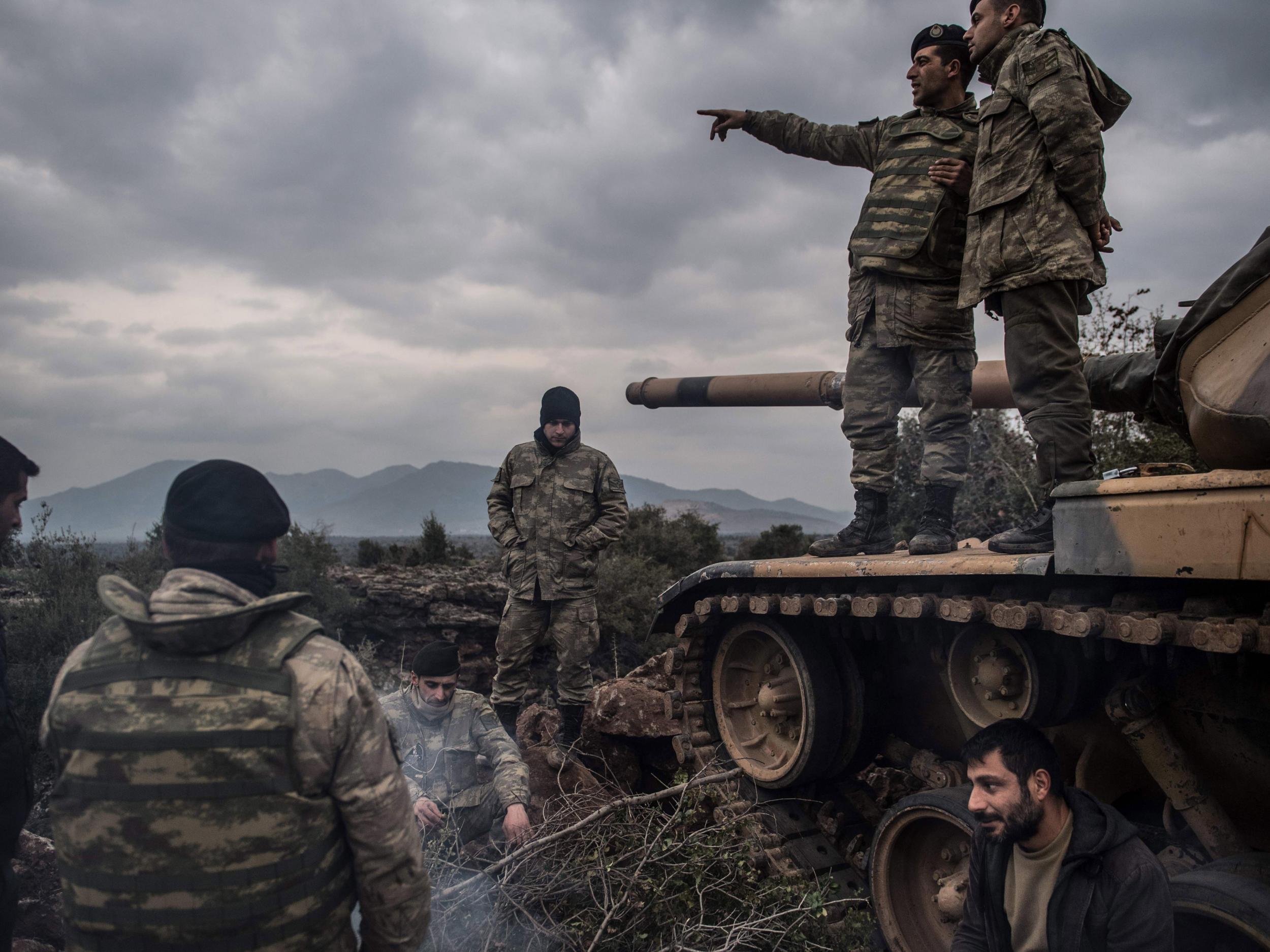Syria: Turkey warned US before strikes against US-backed Kurdish militia
Washington 'very alert' to situation, says American Defence Secretary Jim Mattis

US Defence Secretary Jim Mattis has admitted that Turkey warned Washington it was going to carry out air strikes against Kurdish militia which are backed by his country.
Washington remained in discussions with Ankara, he said, without disclosing his government's reaction to the attacks.
“Turkey was candid," he said. "They warned us before they launched the aircraft they were going to do it, in consultation with us.
“And we are working now on the way ahead. We’ll work this out.”
Mr Mattis said Turkey’s military informed Washington of its air operation in a phone call to high levels of the US military. He said none of his country's forces were currently at risk from the Turkish operations.
Asked whether he was concerned about the situation, Mr Mattis said: “We are very alert to it. Our top levels are engaged ... And we’re working through it.”
The air strikes in Syria’s Afrin province open a new phase of the country’s seven-year war.
It pits the country against a Kurdish group known as the YPG, who form part of a US backed alliance battling Isis fighters in the region.
Turkey regards the group as terrorists and has claimed it is linked to Kurdistan Workers Party (PKK), which it has banned.
The group has carried out a deadly, three-decade insurgency in Turkey’s mainly Kurdish southeast and the US's support for the group in Syria has angered it.
Mr Mattis acknowledged that Turkey had "legitimate security concerns" and noted that it was the only member of Nato with an active insurgency inside its borders.
He said that the US military was deployed in Syria in a way that meant it could ensure its weaponry was being used to battle insurgents, not Turkish forces. "That support has allowed the US-led coalition to crush Isis," he added.
The Kurdish and other US-backed fighters "have proven their effectiveness,” he said adding that it had "cost them thousands of casualties."
Turkey's operation nonetheless comes at a time when ties between Ankara and Washington appear strained.
Relations between the countries are particularly crucial given their key roles in the coalition against Isis and in the North Atlantic Treaty Organisation (Nato).
Turkey's foreign minister Mevlut Cavusoglu held a phonecall over the weekend with his French counterpart, Jean-Yves Le Drian.
The French foreign ministry later said France had called a United Nations Security Council emergency meeting over the situation in Syria that will meet this week.
Mr Cavusoglu was later reported to have said anyone who opposed his country's Afrin operation will have taken the side of terrorists.
Ankara expected France to support Turkey, he added.
Reuters contributed to this report
Join our commenting forum
Join thought-provoking conversations, follow other Independent readers and see their replies
Comments
Bookmark popover
Removed from bookmarks